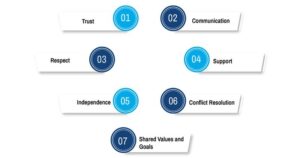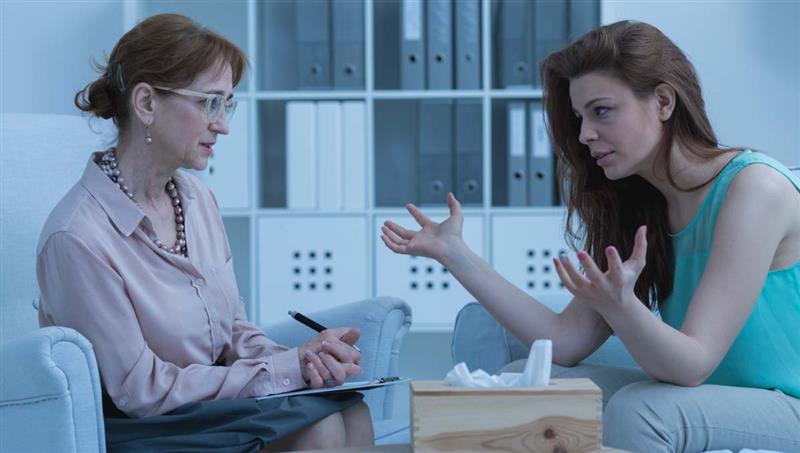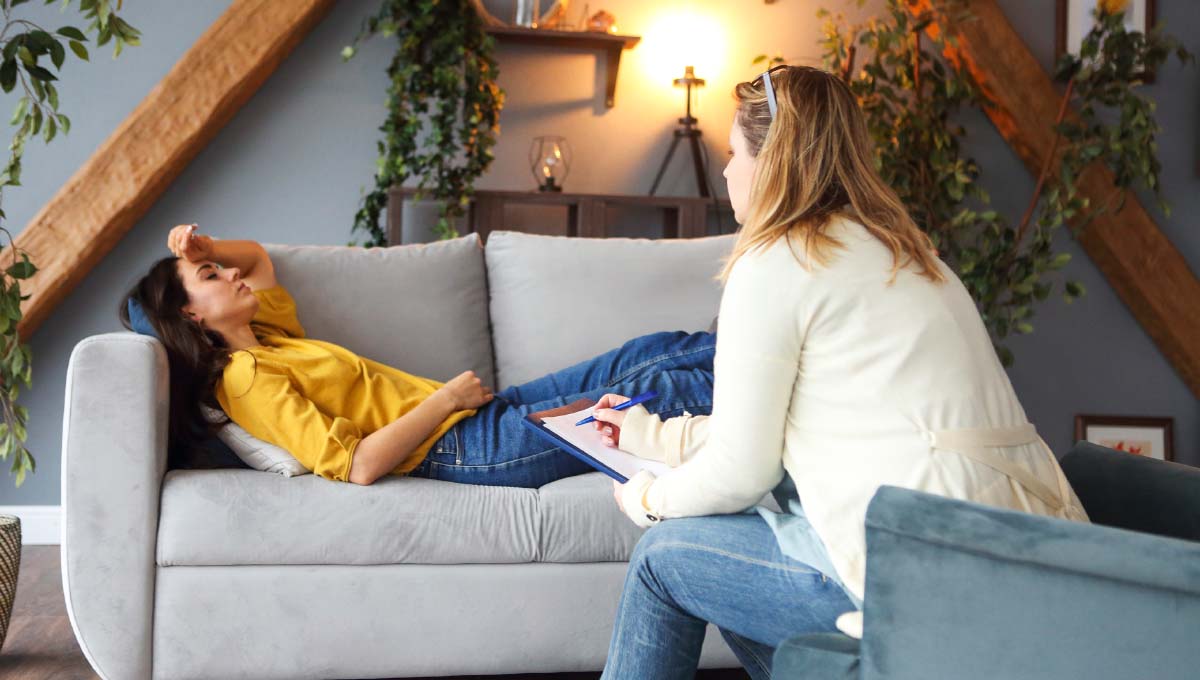In a healthy relationship, one side knows the other, while both experience a healthy life. In addition, the ability to understand one another is one of the best qualities of a healthy relationship. They listen patiently, communicate openly even when in disagreement, and they respect one another.
There is a lot of trust, and both feel comfortable expressing themselves. Each partner respects the other fellow’s space, purposes, and individual development. There is only love, kindness, and respect. A harmonious relationship provides a very strong emotional base for a happy life.
What Is a Healthy Relationship?
A healthy relationship occurs when individuals admire, have confidence, and support each other. Both People listen to each other, share problem-solving, and make decisions together as a team. They make time and space for themselves to grow as people while they spend time together as well. If a match is healthy, both human beings are honest and nice.
They do not make attempts to upset or dominate each other. Rather, they assist each other in becoming better and liking themselves. They even argue but do it politely and try to get to understand each other. It can be founded on love and care and equal certainty from both people. If you have any stress in your relationship, you may seek some professional help. If you might have some mental health issues, contact us at MAVA Behavioral Health!
Signs of a Healthy Relationship
Here are the signs of a healthy relationship:
- Respect for one another
- Honest and transparent communication
- Support and confidence
- Both spouses must put out equal effort.
- Feeling secure and appreciated
- The capacity to politely disagree
- promotion of individual development
- Joint decision-making
- Sympathy and kindness
Healthy Relationships for Teens
Healthy relationships make teens happy, safe, and respected. In a good relationship, both people are listening to each other, trusting each other, and supporting their goals and dreams. They are not afraid to share their feelings, and they respect other’s opinions even if they do not agree. Everyone has the option not to do anything uncomfortable, and both people are free to be who they are.
Healthy relationships in teens are kind and honest with each other. They spend time with each other but also make room for each other. It’s okay if someone is confused or unhappy in a relationship to speak to a trusted adult or friend. Developing good relationships in time will help teens learn how to communicate and take care of others positively.
Characteristics of a Healthy Relationship
Characteristics of a healthy relationship:
- Every person encourages and assists the other in good and bad times.
- Both partners take responsibility for and make decisions together.
- Each individual has their identity, spending time on them.
- Care and love are represented through small actions regularly.
How To Have a Healthy Relationship?
For a healthy relationship, both people need to be nice and friendly towards each other and have the right amount of respect and honesty. You should speak and express openly about your thoughts and feelings, as well as listen when the other person speaks. Quality communication prevents misunderstandings and requires more strengthening of the bond.
Therefore, trust and support are also imperative to a good relationship. You should feel comfortable as yourself and understand that your partner cares about your well-being. Sitting and sharing time, speaking calmly when in conflict, and also allowing each other to have air and a say in their respective life make a relationship loving and balanced.
7 Qualities of a Healthy Relationship

1. Trust
Trust is the mainstay of a good relationship. It is the way you trust your partner’s honesty and intentions. There is no reason to always interrogate and distrust each other.
2. Communication
Healthy couples communicate freely and honestly. They are good listener, talk respectfully, and say how they feel without fear. Clear communication helps avoid misunderstandings. It also strengthens emotional connection.
3. Respect
Respect entails valuing one another’s viewpoints, limits, and distinctions. You treat each other nicely, even if you disagree. Space and choices are respected. Respect each other than the relationship can remain balanced and fair.
4. Support
Good relationship partners boost and support each other. They give each other a hand when things turn rough, and they congratulate each other when they succeed. Emotional support creates trust and dependence.
5. Independence
Each of them is maintaining their own identity and interest. Personal growth and freedom are respected. This avoids codependency and allows for a good relationship.
6. Conflict Resolution
Disagreements are handled without emotions and respectably. Both parties are willing to listen, compromise, and scapegoat. The aim here is to understand each other and not to be victorious.
7. Shared Values and Goals
Couples with good relationships have similar values and plans for life. This alignment lowers conflict and enhances long-term compatibility. Life becomes easier to build when visions are aligned.
Healthy Boundaries in Relationships
Healthy boundaries in relationships mean knowing and honoring each other’s boundaries. They make both people feel safe, valued, and understood. It involves understanding what irritates you, saying “no” when required, and always being genuine about your opinions. When partners understand and accept boundaries between each other, trust and respect grow out of it.
Complete boundaries also mean yielding space and time to each other when necessary. It’s valuable to support each other but not to try to control or alter another person. Healthy partners listen to each other and are comfortable expressing themselves. They respect each other and feel free to be who they are. There is a free balance with no one feeling overwhelmed.
Healthy Vs Unhealthy Relationships
| Healthy Relationship | Unhealthy Relationship |
| Open, honest, and respectful communication | Poor, dishonest, or manipulative communication |
| Mutual respect for boundaries, opinions, and individuality | Disregard for boundaries; one partner dominates or belittles |
| Built on reliability and consistency | Filled with suspicion, jealousy, or constant doubt |
| Resolves disagreements calmly and fairly | Arguments are hostile, unresolved, or abusive |
| Balanced power and decision-making | One-sided control or imbalance of power |
Can A Toxic Relationship Become Healthy?
Yes, a toxic relationship can become healthy, but it does take both people to try and make it that. First, they must accept that the relationship has problems and be willing to change the issues. Good communication, clear boundaries, and shared feelings are important steps. Talking to a therapist or counselor can also help in the flow of the healing process.
It’s not easy, and it takes time and patience. If only one person is attempting to work things out, the relationship could remain unwell. Nevertheless, if both want to grow and transform, it is possible to transform a toxic relationship to be one that is healthy and loving.
Healthy Relationship Tips
Here are a few tips and qualities of a healthy relationship:
- Communicate frankly to eliminate misunderstandings.
- One must also listen when disagreeing with your partner with an open mind.
- Provide each other with space and freedom to preserve one’s self-identity.
- Tackle problems peacefully without accusing or screaming.
- Support each other’s aims and dreams to grow well into one.
- Make some healthy boundaries and respect those boundaries for mutual comfort.
- Take quality time due to which you two will consolidate your relationship.
Personal and Healthy Relationships
Personal and good relationships are relations with family, friends, or partners that make us feel loved, safe, and respected. In these relationships, people take care of each other, listen, and are honest. They tolerate each other and support each other during difficult times. A sound relationship makes both people happy and valued.
Good relations also make room, when necessary, without making anyone feel controlled or frightened. Arguments are possible, but they are cleared by talking reasonably and understanding one another. Nobody should be treated badly or disrespectfully.
Final Thoughts
Healthy relationships are very valuable in life since they add to our lives emotional support, trust, and happiness. It makes us feel valued, understood, and safe, which in turn increases our level of self-confidence and mental well-being. In a good relationship, both people value each other, are open with each other, and work together to solve problems.
This positive relationship helps to reduce stress as well as favors personal growth. It also imparts vital life skills such as empathy, patience, and sharing, among others. Whether it is family, a friend, or your partner, a good relationship will set good foundations for your happier and more balanced life. It helps us develop psychologically, socially, and even physically.
FAQs
What is a healthy relationship?
Mutual respect, trust, and open communication are the foundations of a good relationship. Both feel safe and valued and respect each other. It promotes individual development and emotional links.
What are the 5 traits of a healthy relationship?
The five major qualities are trust, respect, honesty, support, and good communication. The qualities contribute to a balanced account of love. They enable each of them to feel safe and looked after.
What are the 5 A’s of a healthy relationship?
The 5 A’s are Attention, Acceptance, Appreciation, Affection, and Allowing. These create emotional closeness and respect. Combined, they are the basis of a good relationship.
How to develop a healthy relationship?
A healthy relationship takes honesty, listening, and mutual respect. Open communication is important; we should support each other and endure issues without getting angry. It is through giving space and showing care that it becomes stronger.









